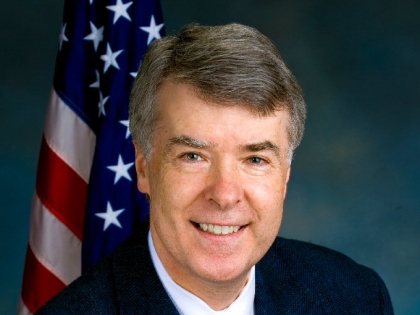
Senator Foley Supports Rights of Nurse Practitioners to Operate Independently
Brian X. Foley
June 14, 2010
-
ISSUE:
- Health
- Health Care
State Senator Brian X. Foley (D - Blue Point) has announced his support of a bill that would allow certified nurse practitioners the ability to practice within their lawful scope without placing unnecessary barriers between themselves and their patients.
Senator Foley, chairman of the Senate Banking Committee, is a co-sponsor of the Patient & Advocacy Act (S.2948/A.765) that would eliminate the legal requirement for nurse practitioners (NPs) to have a written collaboration agreement with a physician in order to practice. The requirement of a written collaboration agreement with a licensed physician can restrict patient access to needed primary care.
"Nurse practitioners serve a vital role in patient care in New York," said Senator Foley. "They are often a first line of defense for patients, particularly those in rural areas, who are seeking a diagnosis, therapeutic treatment or prescriptions for necessary medications and medical devices. Allowing nurse practitioners to operate independently of physicians will both assist patients who are seeking medical treatment by expanding their options for care and recognize the advanced level of training and certification these professionals obtain in order to practice. I am proud to be a co-sponsor of this legislation."
New York is one of many states that have introduced legislation that would expand the availability of nurse practitioners by removing such restrictions. If approved by Albany, New York would join a growing national movement to empower nurse practitioners with greater autonomy. Overall 16 states and the District of Columbia, including most recently Hawaii, Colorado, Maryland, and Rhode Island, have eliminated the need for statutory collaboration between nurse practitioners and physicians.
“We commend Senator Foley for his support of this critical piece of legislation which would expand access to care by enabling nurse practitioners to practice to their utmost abilities without unnecessary barriers. In this new age of healthcare, we can no longer afford waste and inefficiency by not maximizing our healthcare resources. Nurse practitioners are a great fit for providing high quality, cost-effective and timely primary care,” said Seth Gordon, president and CEO of the Nurse Practitioner Association New York State. “Senator Foley understands that collaboration between healthcare professionals is already a professional responsibility and occurs absent unnecessary and costly legal mandates. Now is the time for New York State to recognize the capabilities of NPs, who have been filling patient care voids for nearly half a century, and fully embrace them as an integral part of our healthcare team.”
When President Obama signed the new health care reform into law in March, he provided access to health insurance for an estimated 32 million more Americans by 2019, under the stipulation that each individual have a primary care provider. Primary care physicians are already in short supply throughout the country and the field faces formidable challenges as it continues to lose doctors to other specialties which provide better pay and better hours. A recent study by the American Academy of Family Physicians predicts that the U.S. shortage of primary care doctors is expected to grow to around 40,000 by 2020.
Nurse practitioners bring a distinctive approach to patient care that matches the new need and increasing demand for access to healthcare.
In New York, there are more than 14,000 licensed nurse practitioners. The Nurse Practitioner Association of New York State serves as the statewide voice for the profession.
Nurse practitioners are advanced practice nurses who today function as mainstream healthcare providers in various primary care and specialty roles. The combination of nursing experience and advanced study makes NPs uniquely qualified to provide high quality, nurturing and individualized care.
NPs diagnose and treat illness, monitor and manage chronic conditions, order and interpret diagnostic tests, and prescribe medications. In New York State, NPs typically work in practices or settings similar to physicians and are committed to providing quality care as valuable members of a collegial healthcare community.
The nurse practitioner profession began in the 1960s when a registered nurse and a physician collaborated to create the first NP program at The University of Colorado. Gradually, other schools began to follow suit and implement their own programs as federal funding became available in the 1970s in response to a shortage of primary care providers. By 2000, NPs were legally allowed to practice in every state and Washington, D.C.
Presently, there are about 145,000 nurse practitioners nationwide certified in various specialty areas, including acute care, adult health, community and family health, gerontology, holistic nursing, neonatology, obstetrics/gynecology, oncology, palliative care, pediatrics, perinatology, psychiatry, school health and women’s health.
About the Nurse Practitioner Association New York State
The NPA was established in 1980 as a non-profit organization under the name The Nurse Practitioner Association, Inc. Since 1980, the NPA has grown and increased the visibility of NPs within the healthcare community, at both the national and state levels of government, and with consumers throughout New York. Its mission is to promote high standards of healthcare delivery through the empowerment of nurse practitioners and the profession. The NPA has members from nearly every county in the state, practicing in all specialty areas in many health care settings, including hospitals, nursing homes and private practices. For more information, visit www.thenpa.org.
Share this Article or Press Release
Newsroom
Go to NewsroomSenator Foley Secures Funding for Long Island Maritime Museum
September 24, 2010
Senator Foley Secures Funding for Greater Patchogue Foundation
September 24, 2010
Senator Foley Secures Funding for Bayport Fire District
September 24, 2010